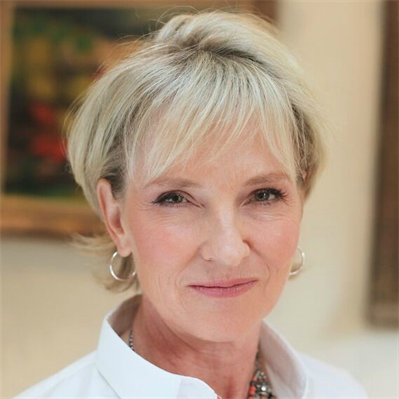10 Free Events with Julia Samuel MBE

We’ve been blown away by your response to our events with Julia Samuel MBE, a paediatric counsellor and one of the UK’s leading psychotherapists. To make it even easier for you to sign-up for one or more of her events, we’ve compiled this list – simply click on the event title and register to receive a reminder.

THE GUILT MONSTER: GRIEF’S COMPLICATED SIDEKICK
Regrets can be hidden away in shame and can fester, sometimes holding us back for years following the death of a loved one. In this enlightening discussion, Julia seeks to demystify the role that guilt plays in bereavement. She will offer her expert insight, wisdom and compassion to those who are struggling with guilt in grief.

When a loved one is ripped from us with little or no time to prepare, dealing with the aftermath can be unimaginably hard. Such traumatic loss can change a person’s whole perspective of the world. Join us to hear Julia’s invaluable insight and wisdom, which we hope will prove helpful for anyone who has ever found themselves suddenly bereaved.

IN CONVERSATION WITH MICHAEL ROSEN
During this one-of-a-kind event, Julia will be joined by children’s novelist and poet Michael Rosen to explore important themes such as love, loss, grief, creativity and the connections between them all. Last year, Michael contracted coronavirus and spent seven weeks in intensive care at Whittington Hospital, six of them on a ventilator. He wrote about this experience in Many Different Kinds of Love: A story of life, death, and the NHS, which will be published in March 2021.

This year, it has been our pleasure to host a series of free events with Julia. Each month, Julia has focused on a different type of bereavement, including the death of a parent, sibling, and partner, with a short talk on the subject, followed by answering questions from the audience. As part of Good Grief 2021, we are making these events available to watch on-demand from 09:00 on March 27th to 20:00 on March 28th. You can also register now for the fourth event in the series, during which Julia discusses the death of a child.

Supporting an individual and their family when someone they love dies is something we all want to do in the best way that we can. During this session, Julia looks at the impact grief can have on all members of the family, including children. She introduces ways of coping with grief and crisis and offers insight into how you can help those experiencing bereavement. Julia also looks at grief’s healing and transformative potential.

There is no one correct way to grieve, with as many ways to express grief as there are bereaved people. One misconception is that there are defined ‘stages’ of grief that everyone goes through – and goes through in the same order. During this event, a panel of grief experts comes together to bust some classic myths surrounding grief, seeking to enlighten us in the process. Julia is joined by facilitator, Dr Lesel Dawson, of the University of Bristol, and panellists Andy Langford, Chief Operating Officer of Cruse Bereavement Care, and Shelby Forsythia.

Grief is a natural, essential and ubiquitous part of the human experience that manifests in different ways. Some grieve the loss of language or culture while others feel the collective grief of Covid-19. Many grieve for the huge injustices that occur around the world, while others grieve for the planet itself. Open conversations about grief are more important than ever as we move together, as a global society, through a time of unprecedented crisis. Julia speaks with Andy Langford, Chief Operating Officer of Cruse Bereavement Care, Dr Patrick Vernon and Alex Evans, to explore how grief is ubiquitous with our times.

CREATIVE PSYCHOTHERAPY TOOLS FOR GRIEF
Julia discusses the importance of externalising the relationship with the person who has died, instead of hiding it away and covering it up. She also talks about the importance of using objects to remember and connect to people who have died, and the power of writing letters, visualisation techniques and other creative activities that allow you to connect imaginatively with the person who has died. Join this talk for ideas on what you can do to support yourself when you are grieving, giving tips on how time can best be put to use, in processing your grief rather than purely ruminating on it.